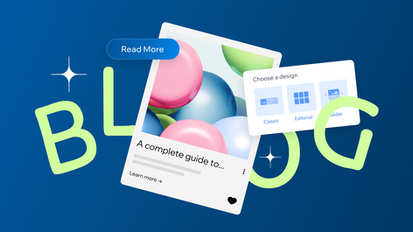Cheap Web Design FAQ
Cheap Web Design Explained
Cheap Web Design
Web hosting is a critical component of any website or online business. It refers to the service that allows individuals and organizations to post a website or web page onto the internet. Web hosting providers are companies that provide the technology and server space needed to make websites accessible on the World Wide Web. In this article, we will discuss the importance of web hosting, different types of web hosting, and factors to consider when choosing a web hosting provider.

Cheap Web Design FAQ
Cheap Web Design
Importance of Web Hosting
Web hosting is essential for any website to be visible on the internet. Without web hosting, your website would not be accessible to users. When you sign up for a web hosting service, you are essentially renting server space where your website files are stored. The web hosting provider ensures that your website is available to users 24/7, and also provides technical support and maintenance services to keep your website running smoothly.
Another important aspect of web hosting is website speed and performance. The speed at which your website loads can have a significant impact on user experience and search engine rankings. A reliable web hosting provider will ensure that your website loads quickly and is accessible to users across the globe. In addition, web hosting providers offer security features such as SSL certificates and regular backups to protect your website from cyber threats and data loss.
Different Types of Web Hosting
There are several types of web hosting services available, each with its own set of features and benefits. The most common types of web hosting are:
1. Shared Hosting: Shared hosting is the most basic and affordable type of web hosting. In this setup, multiple websites share the same server resources, including storage space, bandwidth, and CPU power. Shared hosting is ideal for small businesses and individuals with low traffic websites.
2. VPS Hosting: VPS (Virtual Private Server) hosting is a step up from shared hosting. In VPS hosting, websites are hosted on virtual servers that mimic dedicated servers but share server resources with other websites. VPS hosting offers more control and customization options compared to shared hosting.
3. Dedicated Hosting: Dedicated hosting provides users with their own physical server. This type of hosting is ideal for websites with high traffic and resource-intensive applications. Dedicated hosting offers the highest level of performance and security but is also the most expensive option.
4. Cloud Hosting: Cloud hosting is a flexible and scalable hosting solution that utilizes cloud infrastructure to host websites. In cloud hosting, websites are hosted on a network of virtual servers that can be easily scaled up or down based on demand. Cloud hosting is a cost-effective option for websites with fluctuating traffic levels.
Factors to Consider When Choosing a Web Hosting Provider
When choosing a web hosting provider for your website, there are several factors to consider to ensure that you are getting the best service for your needs. Some of the key factors to consider include:
1. Reliability and Uptime: It is crucial to choose a web hosting provider with a proven track record of reliability and uptime. Look for providers that guarantee uptime of at least 99.9% and have robust infrastructure to prevent downtime.
2. Performance and Speed: Website speed and performance are critical for user experience and search engine rankings. Choose a web hosting provider that offers fast servers and optimized performance for your website.
3. Security Features: Security is a top priority for websites, especially those that handle sensitive information. Look for web hosting providers that offer SSL certificates, regular backups, and other security features to protect your website from cyber threats.
4. Customer Support: If you encounter technical issues or need assistance with your website, reliable customer support is essential. Choose a web hosting provider that offers 24/7 support via multiple channels such as phone, email, and live chat.
5. Pricing and Plans: Compare pricing and features across different web hosting providers to find a plan that fits your budget and needs. Consider factors such as storage space, bandwidth, and scalability when choosing a hosting plan.
Website builders are online tools that allow users to create and customize their own websites without the need for coding or design experience. These platforms offer a range of templates, drag-and-drop features, and other tools that make it easy for even the most technologically-challenged individuals to create a professional-looking website. For small businesses, website builders offer a cost-effective and user-friendly solution to establishing an online presence.
There are many website builders available on the market, each with its own unique features and pricing options. When choosing a website builder for your small business, it’s important to consider factors such as ease of use, customization options, mobile responsiveness, and customer support. To help you make an informed decision, here are some of the top website builders for small businesses:
1. Wix: Wix is one of the most popular website builders on the market, known for its user-friendly interface and extensive customization options. With Wix, small business owners can choose from hundreds of templates, customize their site with drag-and-drop tools, and even add features such as e-commerce functionality and contact forms. Wix also offers excellent customer support and a mobile-responsive design, making it a great option for small businesses looking to establish a professional online presence.
2. Squarespace: Squarespace is another website builder that is ideal for small businesses looking for a sleek and modern design. Squarespace offers a range of professionally-designed templates that can be easily customized to suit your brand. The platform also includes features such as e-commerce functionality, SEO tools, and analytics tracking. While Squarespace may have a steeper learning curve than some other website builders, its beautiful design options make it worth the investment for small businesses looking to make a strong visual impression online.
3. Shopify: If your small business focuses on e-commerce, Shopify is a top choice for building an online store. Shopify offers a range of customizable templates, payment processing options, and inventory management tools to help small businesses succeed in the online marketplace. With Shopify, small business owners can easily set up their store, add products, and track sales all in one platform. While Shopify does have a monthly fee, the robust features and support make it a worthwhile investment for small businesses looking to sell products online.
4. WordPress: WordPress is a popular website builder that is widely used by small businesses and bloggers alike. With WordPress, users have access to thousands of themes and plugins that can help customize their site to fit their needs. While WordPress does have a steeper learning curve than some other website builders, its flexibility and scalability make it a powerful tool for small businesses looking to grow their online presence. WordPress also offers excellent SEO capabilities, making it a great choice for businesses looking to increase their visibility in search engine results.
5. Weebly: Weebly is an affordable website builder that is perfect for small businesses on a budget. Weebly offers a range of customizable templates, drag-and-drop tools, and e-commerce functionality to help small businesses create a professional online presence. Weebly also offers built-in SEO tools, analytics tracking, and mobile responsiveness, making it a great all-in-one solution for small businesses looking to launch their website quickly and easily.

What Is Cheap Web Design?
Cheap Web Design
In conclusion, AI web developers are a crucial part of the technological revolution that is transforming the field of web development. These professionals have a deep understanding of AI algorithms, machine learning, natural language processing, and other AI technologies that enable them to create websites that are smarter, more intuitive, and more user-friendly. By leveraging AI technologies, AI web developers are pushing the boundaries of what is possible in web development, creating websites that can think, learn, and adapt to user preferences. If you are looking to create innovative and dynamic websites that stand out in a crowded marketplace, consider working with an AI web developer who can help you harness the power of AI technologies to achieve your goals.


